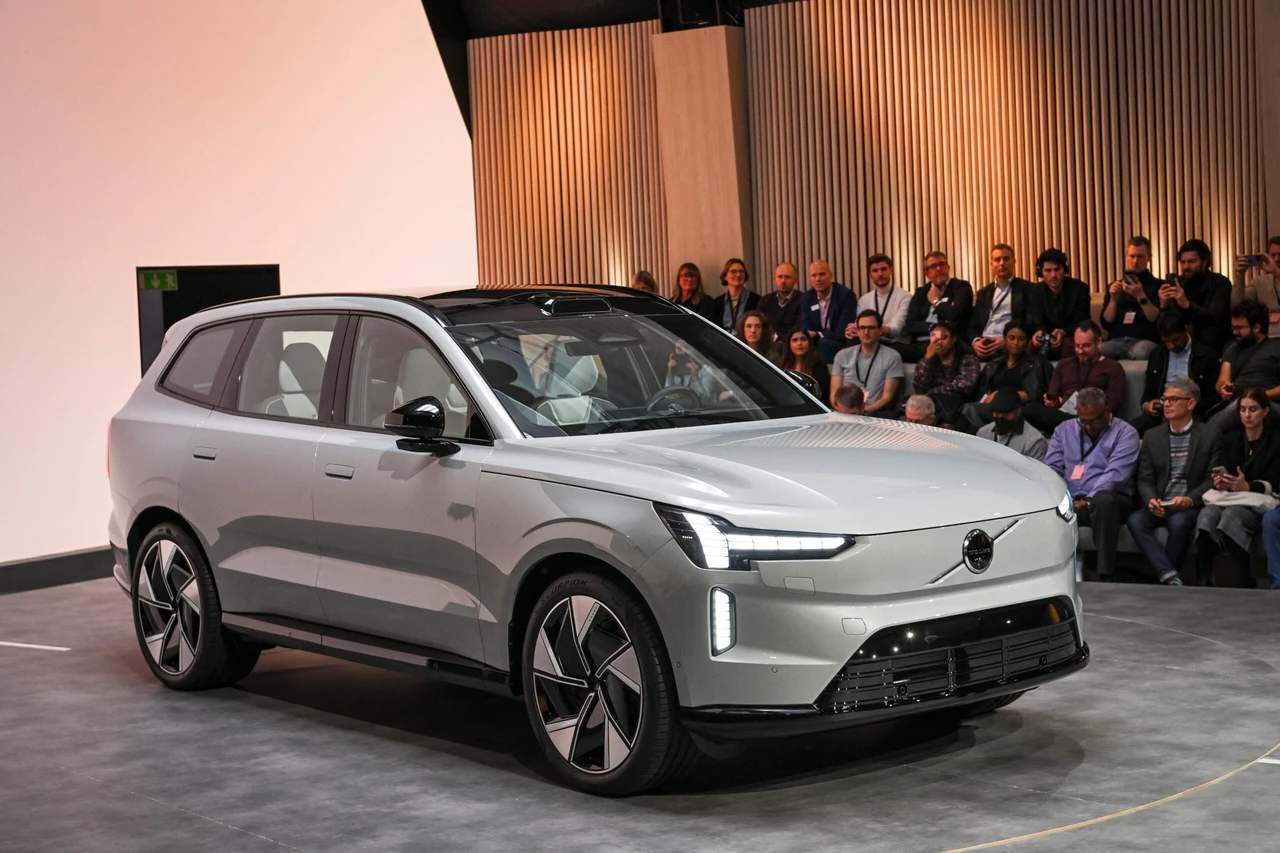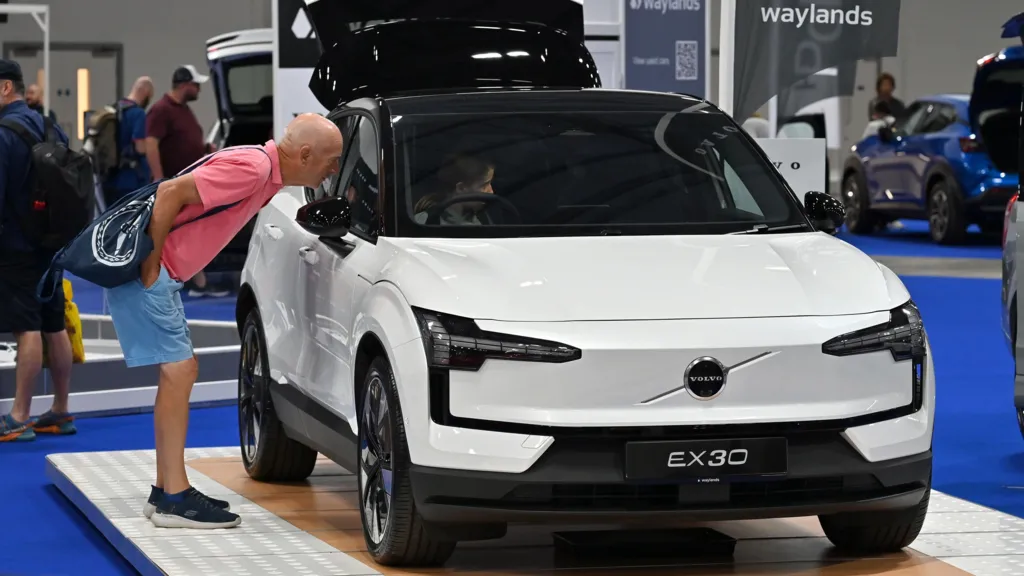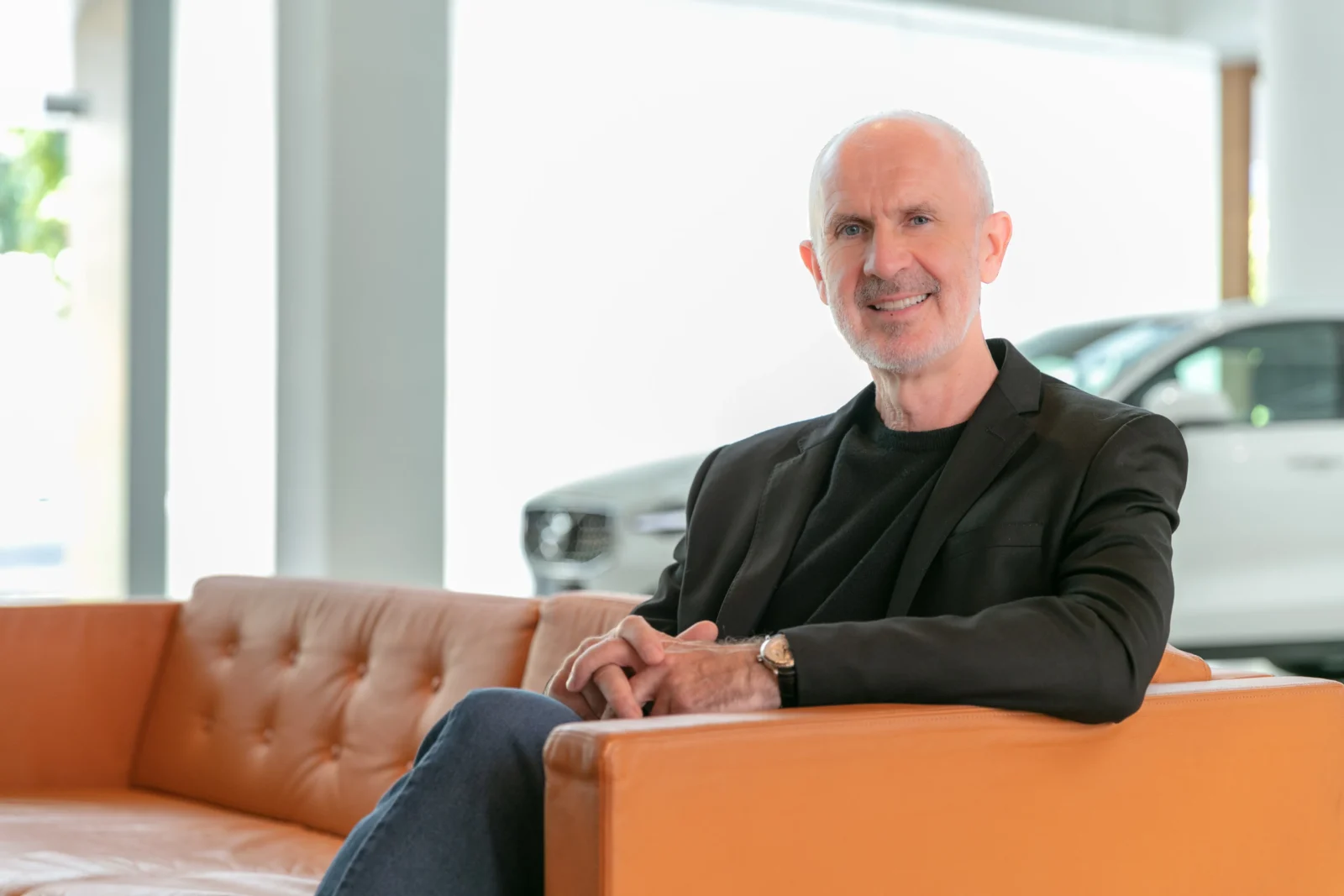Sweden’s Volvo abandons all-electric goal for 2030
 Volvo EX90, the company's new electric SUV, is unveiled during a launch event in Stockholm, Sweden November 9, 2022. (Reuters Photo)
Volvo EX90, the company's new electric SUV, is unveiled during a launch event in Stockholm, Sweden November 9, 2022. (Reuters Photo)
Sweden’s Volvo Cars has revised its ambitious plan to sell only electric vehicles (EVs) by 2030, citing a need for “pragmatism and flexibility” amid evolving market conditions and decreasing demand for EVs.
In a statement released Wednesday, Volvo Cars, which is owned by China’s Geely Holding, announced that instead of moving entirely to electric cars, the company will now aim for 90-100% of its vehicles to be either fully electric or plug-in hybrid models by the end of the decade. Up to 10% of its offerings will continue to include mild hybrid models.
Shift in strategy reflects cooling demand, market challenges
Volvo‘s move follows similar strategic adjustments by other major automakers, such as Mercedes-Benz Group and Volkswagen, who have scaled back their electrification goals in response to challenges in the global EV market.
The company pointed to several hurdles in achieving its electrification ambitions, including the slower-than-expected rollout of charging infrastructure, reduced government incentives in key markets, and the impact of recent tariffs on electric vehicles in various regions.
“These developments show that there continues to be a need for stronger and more stable government policies to support the transition away from fossil fuels,” Volvo Cars said in its statement.

Volvo retains long-term electrification ambitions
Despite this adjustment, Volvo remains committed to its long-term goal of becoming a fully electric carmaker.
The company highlighted that 26% of its sales in the second quarter of 2024 consisted of fully electric cars, which it noted is the highest among its premium peers. When combined with plug-in hybrids, the company’s electrified vehicle share reached 48%.
An electric car offers a “superior driving experience,” said Jim Rowan, CEO of Volvo Cars, who also emphasized the potential for advanced technologies that enhance the customer experience.
CEO Jim Rowan highlights flexibility in transition
“We are pragmatic and flexible while retaining an industry-leading position on electrification and sustainability,” Rowan said in the statement.
He acknowledged that the transition to electrification is complex, noting that “customers and markets are moving at different speeds of adoption.”
Shares of Volvo Cars were down by more than 4% following the announcement.

Industry-wide adjustments amid EV market uncertainty
Volvo’s revised plan reflects broader challenges facing the global electric vehicle industry. Automakers worldwide are grappling with uneven adoption rates, supply chain issues, and fluctuating government policies.
As market conditions continue to evolve, Volvo Cars maintains that flexibility will be key to navigating the path toward its electrified future.



